Exercise , a healthy diet, boosting your immune system, avoiding stress and getting enough sleep are the secrets that helped Rosamund Dean, 53, prevent breast cancer from recurring.
In 2011, at the age of 40, Rosamund Dean, who worked in journalism, was diagnosed with stage 3 triple-negative breast cancer. She endured painful and exhausting days of chemotherapy, radiation, mastectomy and reconstruction.
Triple-negative breast cancer is different from other common breast cancers, it is more difficult to treat and much more aggressive. For this reason, people with triple-negative breast cancer have fewer treatment options. According to published data, this type of cancer accounts for about 10-20% of all breast cancers, with a higher recurrence rate.
Today, Dean lives a healthy life, thanks to his own tips as well as consultations with doctors, scientists , nutritionists and immunologists.
Exercise regularly
Strengthening your body is the most powerful cancer-fighting thing you can do, says Dean. A series of large-scale studies over the past few years have clearly shown a causal relationship between a sedentary lifestyle and breast cancer. Regular exercise reduces the risk of breast cancer by 40-60%. Trials involving hundreds of thousands of breast cancer patients have also shown that exercise reduces the risk of recurrence by 50%.
Sarah Newman, founder of Get Me Back, an online community for women with cancer, said the World Health Organization (WHO) recommends 150 minutes of aerobic exercise a week. Or 30 minutes a day of gardening, cleaning the house, brisk walking, playing with children or jogging. In addition, breast cancer patients can add 15 minutes of vigorous exercise such as running at a fast pace or playing sports.
The WHO also recommends two sessions of strength training per week. Resistance band exercises are a simple and cost-effective alternative to weights. If this is too much, you can do activities you enjoy, such as cycling, walking, dancing, etc.

Rosamund Dean, healthy 12 years after suffering from breast cancer. Photo: Clara Molden
Eat right
WHO advises breast cancer patients to combine physical activity with a healthy diet. This means maintaining a healthy weight by being physically active every day, walking more and sitting less. At the same time, women should eat whole grains, vegetables, fruits and beans. Limit fast food and processed foods containing saturated fat or sugar, as well as cutting down on red meat and eating less processed meat.
You should focus on a “rainbow diet,” which means eating plant foods of different colors, such as tomatoes, carrots, beets, blueberries, and any green vegetables. These contain a variety of phytonutrients, including compounds that affect cell structure and help prevent disease.
Finally, you need to drink plenty of water and limit sugary drinks, beer and alcohol. WHO recommends supplementing nutrition through diet, instead of using functional foods and drugs.
Cut down on alcohol
According to Cancer Research UK, alcohol is linked to seven different types of cancer, including breast cancer. "Alcohol is a carcinogen. It has no nutritional value and is converted into fat in the body. The more fat you have, the more estrogen your body produces after menopause, increasing your risk of breast cancer," says oncologist Dr. Liz O'Riordan, who has had breast cancer. Therefore, the more a person cuts down on alcohol, the more they reduce their risk of developing the disease.
Nourish the immune system
According to Dr. Nina Fuller-Shavel, the immune system is very important, especially for triple-negative breast cancer tumors. "That's why we treat breast cancer patients with immunotherapy. Optimizing the immune system is very important to reduce the risk of recurrence," Dr. Nina said.
Here are some ways to support your immune system, as suggested by your doctor:
First, take care of your gut by eating slower and using probiotics (live yogurt) and prebiotics (fiber-containing plants).
Additionally, you need to keep your blood sugar levels balanced by minimizing refined sugars and staying active.
Women should adopt an intermittent fasting regime by eating dinner earlier and skipping snacking. This gives the immune system time to repair and calm inflammation. You should also eat anti-inflammatory foods like garlic, berries, broccoli and leafy greens. In addition, consume more seasonal foods, which are fresher and more nutritious the less they have to be transported.
Managing stress is also important for your immune system. If your body is exposed to repeated stress, it can impact your immune system and hormones.
Hong Van (According to Telegraph )
Source link


![[Photo] Flooding on the right side of the gate, entrance to Hue Citadel](https://vphoto.vietnam.vn/thumb/1200x675/vietnam/resource/IMAGE/2025/10/28/1761660788143_ndo_br_gen-h-z7165069467254-74c71c36d0cb396744b678cec80552f0-2-jpg.webp)
![[Photo] Draft documents of the 14th Party Congress reach people at the Commune Cultural Post Offices](https://vphoto.vietnam.vn/thumb/1200x675/vietnam/resource/IMAGE/2025/10/28/1761642182616_du-thao-tai-tinh-hung-yen-4070-5235-jpg.webp)

![[Photo] National Assembly Chairman Tran Thanh Man received a delegation of the Social Democratic Party of Germany](https://vphoto.vietnam.vn/thumb/1200x675/vietnam/resource/IMAGE/2025/10/28/1761652150406_ndo_br_cover-3345-jpg.webp)


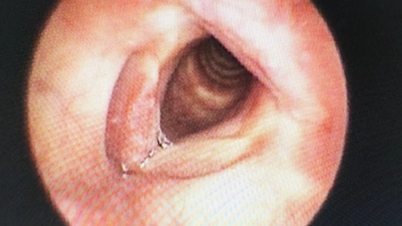

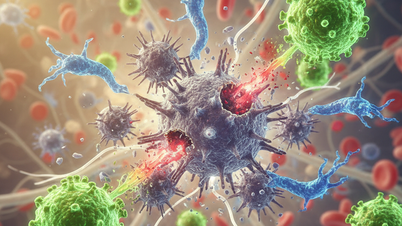






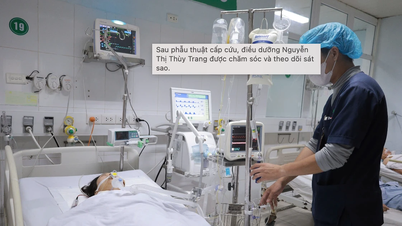

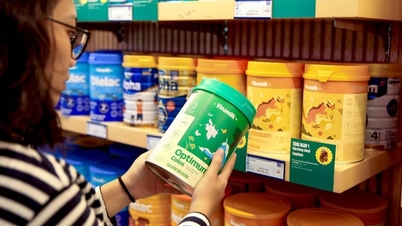


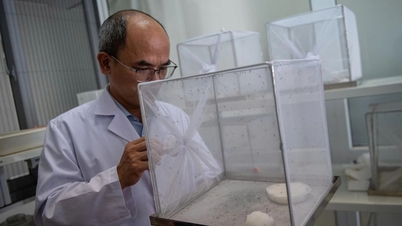













![[Photo] President Luong Cuong attends the 80th Anniversary of the Traditional Day of the Armed Forces of Military Region 3](https://vphoto.vietnam.vn/thumb/1200x675/vietnam/resource/IMAGE/2025/10/28/1761635584312_ndo_br_1-jpg.webp)













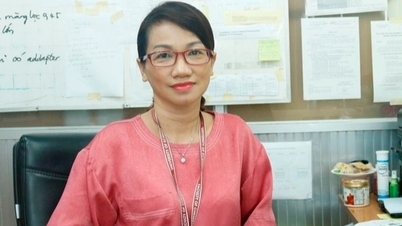



























































Comment (0)